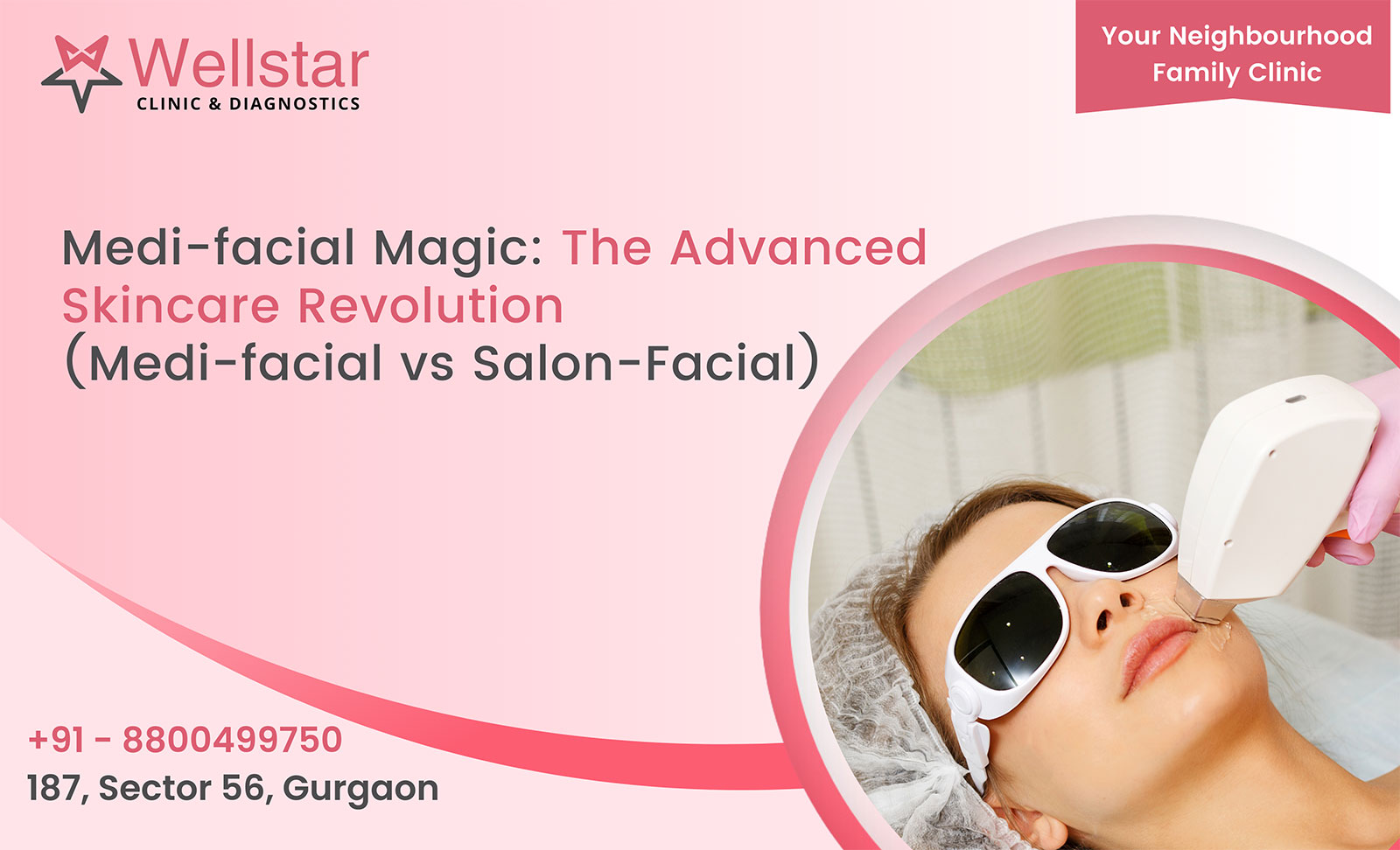Medi-facial Magic: The Advanced Skincare Revolution

Medi-facial Magic: The Advanced Skincare Revolution
Introduction:
In a world where the pursuit of flawless skin is more fervent than ever, the traditional salon facial has found a formidable contender—Medi-Facials. These medically enhanced facials blend the pampering experience of a spa with the expertise of dermatological science, offering not just superficial cleansing but deep, therapeutic benefits for the skin. Let’s delve into the realm of Medi-facials, exploring their benefits over salon facials and understanding who stands to gain the most from this advanced skincare treatment.
The Essence of Medi-Facials:
Unlike conventional facials that focus on surface-level treatments, Medi-facials are performed in a clinical setting by skincare professionals or dermatologists. These facials use pharmaceutical-grade ingredients, advanced technologies, and customized protocols to address specific skin concerns at a cellular level. From rejuvenating aging skin to combatting acne, Medi-facials offer a targeted approach to skincare.
Medi-facial vs. Salon Facial: The Difference
- Customization: Medi-facials are highly customizable, designed to suit individual skin types and concerns, whereas salon facials often follow a one-size-fits-all approach.
- Technology: Medi-facials utilize state-of-the-art technology like LED light therapy, microdermabrasion, and chemical peels, providing results that are typically more intense and lasting.
- Ingredients: The use of medical-grade products ensures that the skin receives the highest quality of care with ingredients that have been proven to be effective in clinical studies.
- Hygiene and Safety: Performed in a clinical environment, Medi-facials adhere to stringent hygiene standards and protocols, minimizing the risk of contamination or adverse reactions.
The Unmatched Benefits of Medi-facials:
– Deep Cleansing: Beyond removing surface impurities, Medi-facials deeply cleanse the pores, reducing the likelihood of acne and improving skin texture.
– Enhanced Absorption: The techniques used in Medi-facials promote better absorption of skincare products, making them more effective.
– Targeted Treatments: From hyperpigmentation and fine lines to acne scars and uneven skin tone, Medi-facials offer solutions tailored to specific concerns.
– Immediate Results: Many individuals notice a difference in their skin’s appearance and texture immediately after a Medi-facial, with continued improvement over time.
– Long-Term Skin Health: With regular treatments, Medi-facials can significantly enhance the skin’s health, contributing to a clearer, more youthful complexion over the long term.
Who Should Consider Medi-facials?
Medi-facials are suitable for almost anyone looking to elevate their skincare regime, especially those with specific skin concerns that traditional facials have been unable to address. They are particularly beneficial for individuals with:
– Acne and Acne Scars: Those struggling with breakouts and post-acne marks.
– Aging Skin: Individuals seeking to reduce the appearance of fine lines, wrinkles, and other signs of aging.
– Pigmentation Issues: Those looking to correct uneven skin tone, dark spots, and hyperpigmentation.
– Sensitive Skin: People with sensitive skin who require carefully curated treatments to avoid irritation.
While Medi-facials offer a wide range of benefits for various skin types and conditions, it’s crucial to be aware of certain contraindications. These factors might make someone ineligible for a Medi-facial or require a tailored approach to avoid adverse effects. Here’s a list of common contraindications for Medi-facials:
- Active Skin Infections: Individuals with active skin infections, such as herpes simplex (cold sores) or impetigo, should avoid Medi-facials until the infection has fully resolved to prevent spreading.
- Severe Acne: While Medi-facials can be beneficial for mild to moderate acne, those with severe or cystic acne may require specialized treatment before undergoing a Medi-facial.
- Accutane Use: Patients currently taking Accutane (isotretinoin) or who have taken it in the past six months may have increased skin sensitivity, making some Medi-facial procedures potentially harmful.
- Skin Cancer: Those with skin cancer or precancerous skin conditions should consult with a dermatologist before undergoing any Medi-facial treatments.
- Open Wounds or Recent Burns: Open skin lesions, recent burns, or wounds need to heal before undergoing a Medi-facial.
- Pregnancy and Breastfeeding: Certain ingredients and procedures used in Medi-facials may not be safe for pregnant or breastfeeding women. Always consult with a healthcare provider beforehand.
- Allergies to Ingredients: Individuals with known allergies to specific ingredients used in Medi-facials should inform their skincare professional to avoid adverse reactions.
- Recent Cosmetic Procedures: Those who have recently undergone certain cosmetic procedures, such as laser treatments, chemical peels, or microdermabrasion, may need to wait before having a Medi-facial to prevent overstimulating the skin.
- Sensitive Skin Conditions: Conditions like rosacea, eczema, and psoriasis may be exacerbated by some Medi-facial treatments. A consultation with a skincare professional can help determine a suitable approach.
- Blood Disorders: Certain blood disorders that affect clotting can increase the risk of bruising and should be discussed with a skincare professional.
Given these contraindications, it’s evident that while Medi-facials can be highly beneficial, they’re not suitable for everyone. A thorough consultation with a qualified skincare professional or dermatologist is essential before undergoing any Medi-facial treatment. This ensures that the chosen treatments align with your skin type, condition, and overall health, maximizing benefits while minimizing risks.
